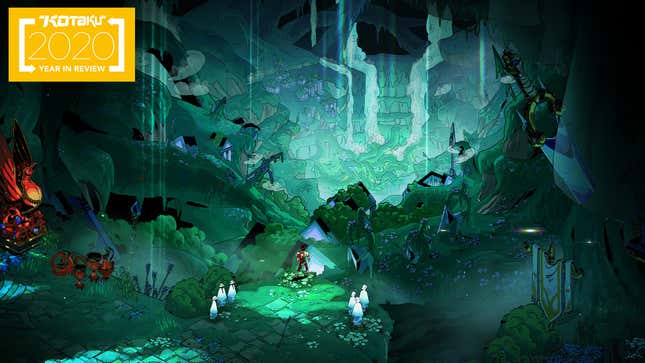
The past year has been one endless, pitch-black night with a single burning, incandescent star: video games. I mean, can you imagine what 2020 would’ve been like without video games? I, for one, cannot. Better yet, it’s not like the annual release calendar was a dry spell, either. From tip to tail, the hits kept coming—truly, a saving grace. Without further ado, here are my top 10 games of the year, in order from best to least-best-but-still-awesome.
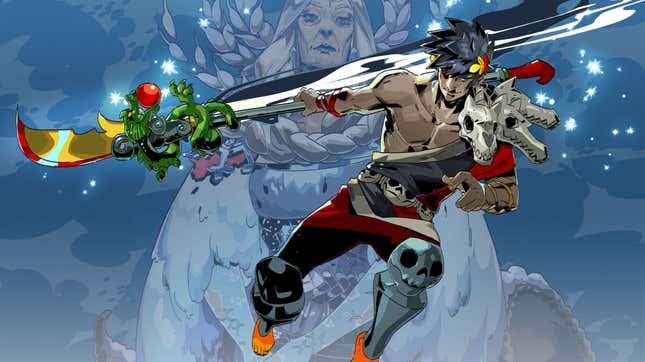
Hades
Everyone knows the story behind Hades. A surprise announcement at the 2018 Game Awards, with an Early Access release on the Epic Games Store that very night. Early access on Steam the following year. A full 1.0 release on PC and Switch in September 2020, at which point everyone with a keyboard or a set of Joy-Cons devoured it. The Game Awards put Hades up for top honors. Polygon, IGN, Destructoid, USGamer, and Rock Paper Shotgun named it the best game of the year. And now, a dude at Kotaku is listing it as his personal number-one. Yes, Hades was, without question, the best game I played in 2020.
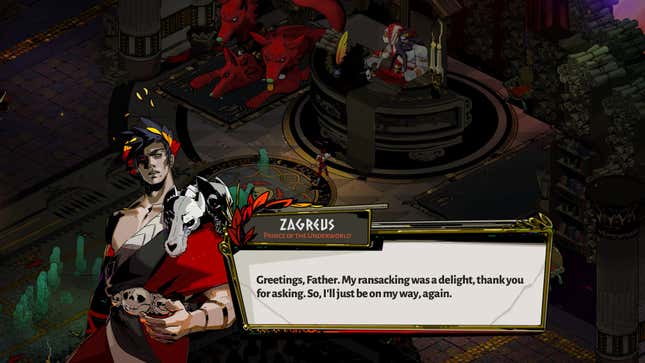
Hades
Hades is simply irresistible. It’s a roguelike, but not quite like all the other roguelikes. In so many games of that nature, failure is failure. Whoops. Next run. Hades, though, always gives you another morsel to usher on your Sisyphean endeavors. Bonds between characters develop at a natural pace. The story—handsome prince of the underworld wants to escape his father’s oppressive realm—forges ahead whether you win or lose. And, yes, with every run, you’re constantly buffing your powers, weapons, and abilities. I bristle at the idea that games are “addictive,” and generally think it’s on the gaming press corps to avoid such harsh language that lacks empathy. But I’d be incorrect to suggest that Hades isn’t a ridiculously compelling game, one that taps into that “Just one more run!” mindset—no matter how late the hour.
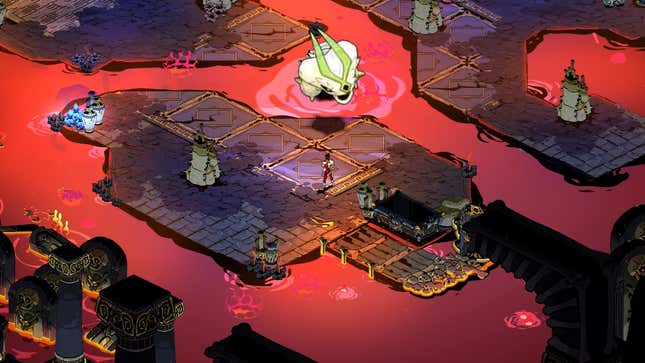
Hades
I’ve long been an acolyte of Supergiant Games, the indie developer behind Hades. I have a tattoo of Transistor, the studio’s sophomore effort. A poster of that game’s main character, Red, hangs in my living room. Pyre ranks among my most-played multiplayer games, and Bastion is, in its brilliant brevity, one of those annual replay games. Needless to say, my hopes for Hades were sky-high. In every regard, the game soared past them. You can see the DNA of Supergiant’s oeuvre in every pixel of Hades: the airtight combat of Bastion; the unceasing, branching narrative of Pyre; the quiet thrum of hope that permeates Transistor; the delicious art, the savvy writing, the music, oh, my god, the music. For a fan of Supergiant’s games, Hades is a dream come true.
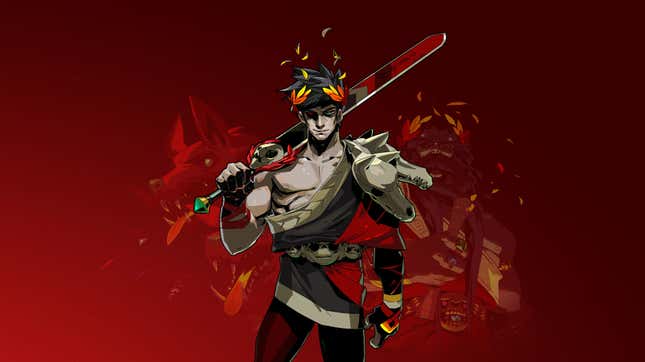
Hades
Exhibit A:
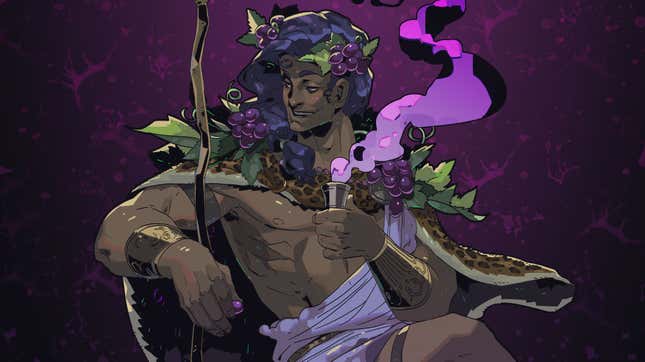
Exhibit B:
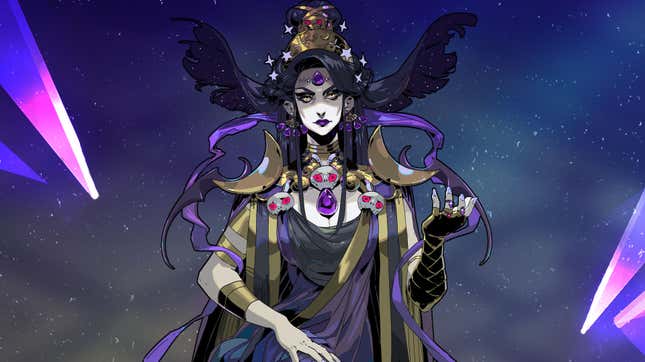
I could go on, but my colleague Ash Parrish already did:
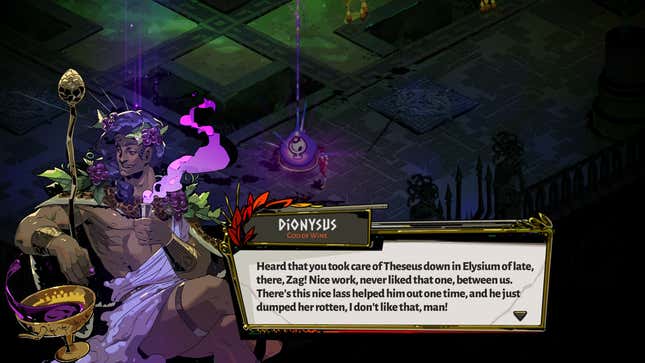
Hades
Raise your hand if you were into Greek mythology since a young age, perhaps a result of reading that one children’s book that lived on every bookshelf in the 20th century. (You know: This one.) Plenty of games in 2020 incorporated Greek mythology—including the pleasant Spiritfarer and the questionably named yet also pleasant Immortals Fenyx Rising—but none hit on them with as much depth, and humanity, as Hades. And it wasn’t just laser-focused on the Olympian gods we’ve all heard about a million times. In Hades, the mortal legends get their fair shake, too. This is a game in which you learn the extent of the unambiguous bond between Achilles and Patroclus. You get a faithful epilogue in the tale of Orpheus and Eurydice. Asterius and that jerk with the infamous boat are treated to a plotline that wasn’t canon two thousand years ago but certainly should be taken as scripture today. With Hades, Supergiant established itself as a worthy steward of the Greek mytheme—a cinematic universe I didn’t even know I wanted a set of sequels for before September. Better yet, Hades single-handedly rekindled a childlike sense of wonder and joy and boundless curiosity.
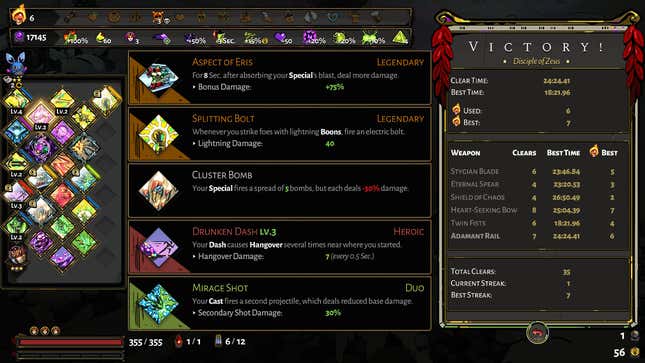
Hades
Look: You needn’t be skilled at playing video games to write about them. If anything, I’m an aggressively average player. (See: My tendency to maintain a roughly 1.0 kill-death ratio in shooter after shooter after shooter.) That said, I know for a fact that I’m good at Hades—not quite on the level of Vorime or Haelian or any of the other Olympian-tier speedrunners, of course, but skilled enough to hold my own. In one run, I even beat the final boss without losing a single hit point. No game in 2020—not even those that cast me as literal superheroes—made me feel as powerful as Hades did. During a year that repeatedly and insistently drove the opposite feeling home, week after week after week, that sensation was a gift.
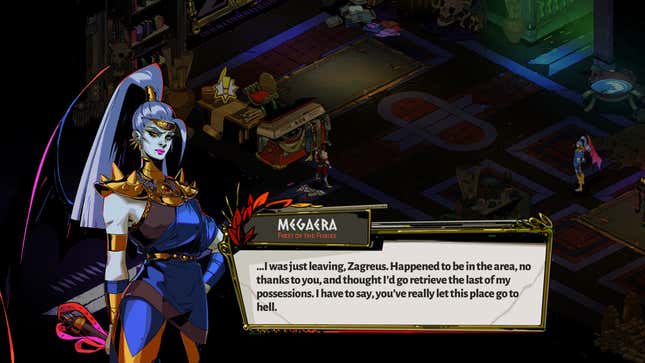
Hades
So many puns!
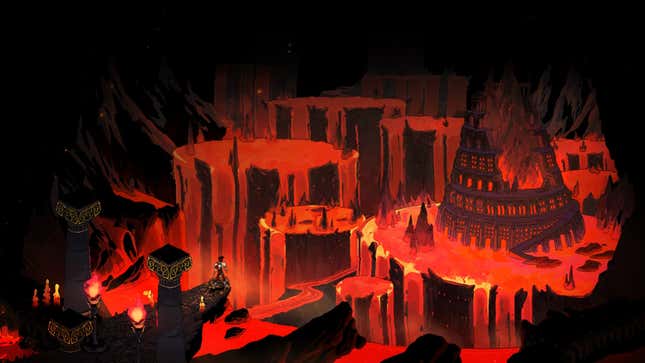
Hades
It’s no secret that plenty of big games these days are developed under “crunch” conditions—long hours and potential weekend work, either mandatory or implicit, in the name of hitting a release target. Hades, however, was developed under seemingly opposite conditions. At Supergiant, emails sent after 5:00 p.m. on a Friday are frowned upon. Employees are required to take at least 20 days off each year. But there’s also apparent support for bonus projects, where, if a staffer is passionate about a feature, they’re given the space and time and resources to pursue it. In creating Hades, Supergiant prioritized employee wellbeing. And yet the game went on to receive a raft of accolades, and sold like hotcakes, to boot. It sets a good example for the industry, if you ask me. Of course, such a model might not work for a multinational mega-developer, but some of those methods could be adapted to improve worker conditions in an industry known for burnout and turnover. The undeniable success of Hades sends a powerful message to the industry.
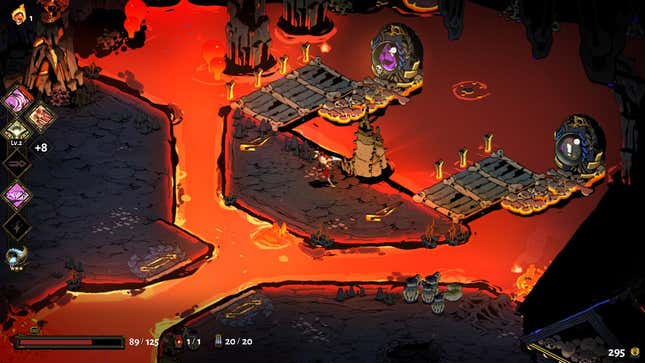
Hades
Hades isn’t a stated creativity game, at least not in the way that, say, Media Molecule’s PlayStation-exclusive Dreams is. That doesn’t mean players couldn’t test the limits of their imagination, devising various builds on the fly in order to complete whole runs with various parameters. Some players even figured out how to beat the game without hitting any buttons. (So much for my “no HP loss” commendation!) In September, the game’s fastest players aimed to beat the whole game in under eight minutes—a jaw-dropping feat that demanded players. Now, the time to beat is under six minutes. The September runs were all built around a specific weapon and a specific set of boons. Today, near the top of the leaderboard, you can see some different combinations. Hades tapped into a well of ingenuity that was so, so fun to bear witness to. Playing Hades was a total blast, but watching from the sidelines was just as engaging.
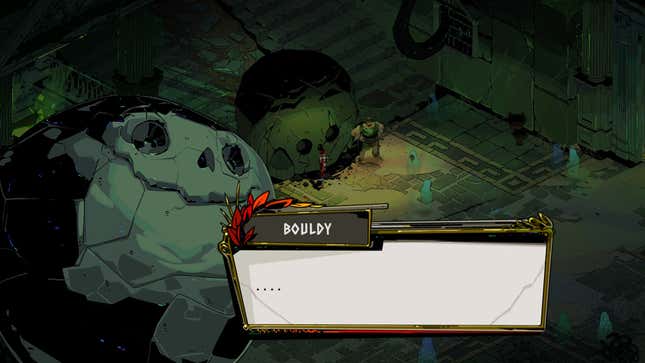
Hades
Thank you, Bouldy, for coming to my TED Talk.
Obligatory “honorable mentions” section
Spider-Man: Miles Morales, The Last of Us Part 2, and Final Fantasy VII Remake each featured enough spectacle worthy of the most venerable PS4 tent poles. Yakuza: Like a Dragon and Paper Mario: The Origami King are solid role-playing games that did not shy away from pulling the heartstrings. Ori and the Will of the Wisps and Ghostrunner sated any hunger for high-wire platforming, while Astro’s Playroom served some delightful lighter fare. Othercide and Gears Tactics offered a whole lot of control—via tactics—in a year that otherwise lacked it. Spiritfarer may be the best idyllic management sim featuring snarky talking animals ever released (certainly in 2020). Destiny 2: Beyond Light got me through a dark week, and also reminded me of how damn tight Destiny’s gunplay is. And, oh yeah, Doom Eternal was a pretty solid shooter, too. A triumvirate of Ubisoft map games (Assassin’s Creed Valhalla, Immortals: Fenyx Rising, and Watch Dogs Legion) all hit the open-world sweet spot, as did Ghost of Tsushima—which pulled surprise double-duty as a killer cooperative game. For all its faults, Cyberpunk 2077 really is a tour de force, despite one that, like the Acropolis of Athens, remains unfinished.
And then there’s Animal Crossing: New Horizons. If you at all tuned into our coverage of Nintendo’s life sim, you likely know that—and this is putting it in tepid terms—I’m not terribly fond of the game. That’s true. Over the 40-plus hours I poured into it, I experienced more frustration than fun, and was by and large honest about that. Still, Animal Crossing meant a whole lot to a whole lot of people in a tremendously hellish time, and no snarky writer on the internet can take that away. If 2021 turns out to be the same type of incessant charley horse that defined every minute of 2020, I’m hoping an Animal Crossing, or something like it, pops up. We should all be so lucky to fall in love with a resonant video game ten times over.